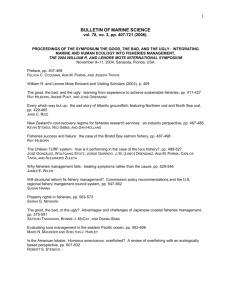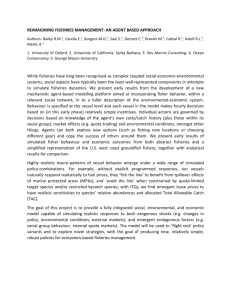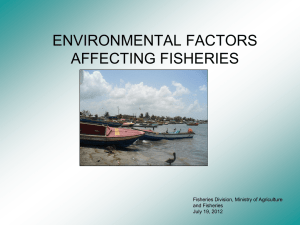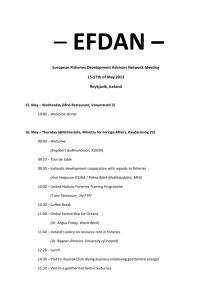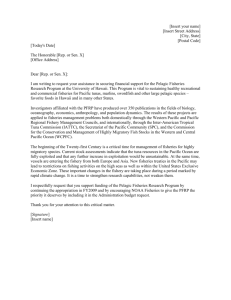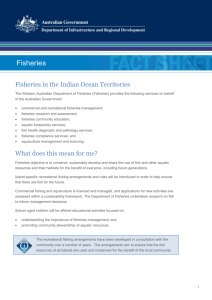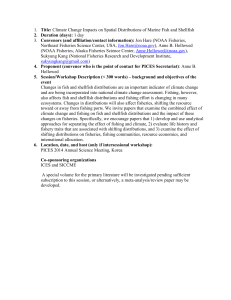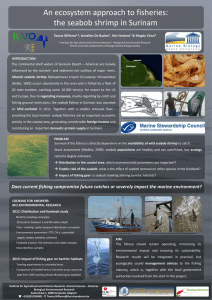First Nations Fisheries
advertisement
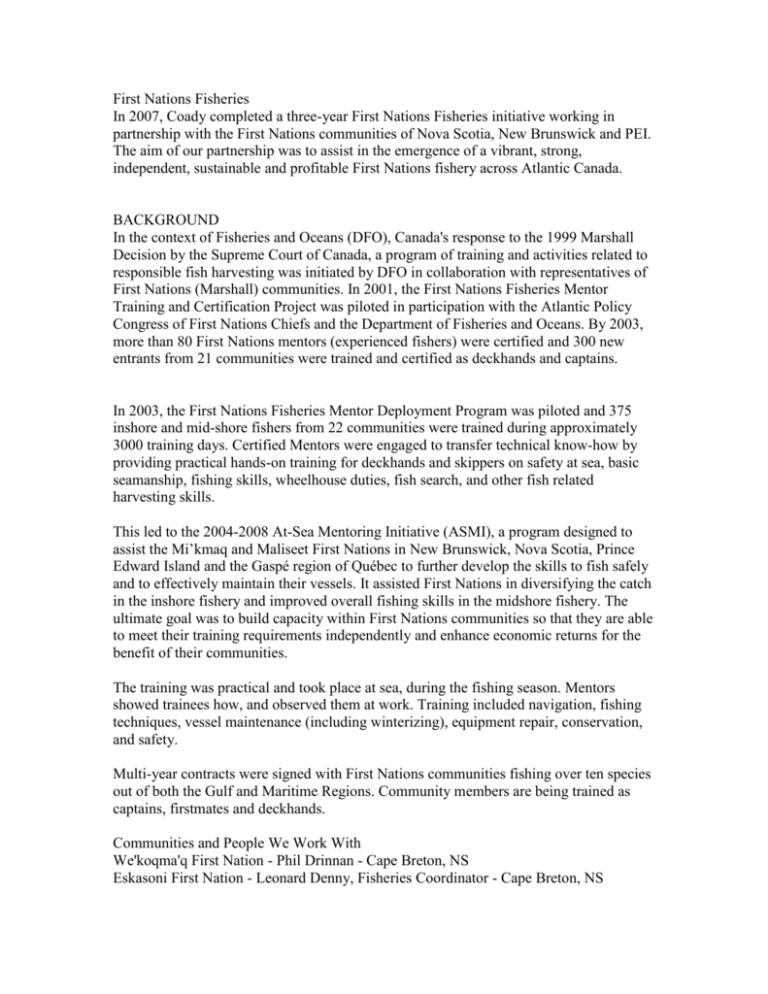
First Nations Fisheries In 2007, Coady completed a three-year First Nations Fisheries initiative working in partnership with the First Nations communities of Nova Scotia, New Brunswick and PEI. The aim of our partnership was to assist in the emergence of a vibrant, strong, independent, sustainable and profitable First Nations fishery across Atlantic Canada. BACKGROUND In the context of Fisheries and Oceans (DFO), Canada's response to the 1999 Marshall Decision by the Supreme Court of Canada, a program of training and activities related to responsible fish harvesting was initiated by DFO in collaboration with representatives of First Nations (Marshall) communities. In 2001, the First Nations Fisheries Mentor Training and Certification Project was piloted in participation with the Atlantic Policy Congress of First Nations Chiefs and the Department of Fisheries and Oceans. By 2003, more than 80 First Nations mentors (experienced fishers) were certified and 300 new entrants from 21 communities were trained and certified as deckhands and captains. In 2003, the First Nations Fisheries Mentor Deployment Program was piloted and 375 inshore and mid-shore fishers from 22 communities were trained during approximately 3000 training days. Certified Mentors were engaged to transfer technical know-how by providing practical hands-on training for deckhands and skippers on safety at sea, basic seamanship, fishing skills, wheelhouse duties, fish search, and other fish related harvesting skills. This led to the 2004-2008 At-Sea Mentoring Initiative (ASMI), a program designed to assist the Mi’kmaq and Maliseet First Nations in New Brunswick, Nova Scotia, Prince Edward Island and the Gaspé region of Québec to further develop the skills to fish safely and to effectively maintain their vessels. It assisted First Nations in diversifying the catch in the inshore fishery and improved overall fishing skills in the midshore fishery. The ultimate goal was to build capacity within First Nations communities so that they are able to meet their training requirements independently and enhance economic returns for the benefit of their communities. The training was practical and took place at sea, during the fishing season. Mentors showed trainees how, and observed them at work. Training included navigation, fishing techniques, vessel maintenance (including winterizing), equipment repair, conservation, and safety. Multi-year contracts were signed with First Nations communities fishing over ten species out of both the Gulf and Maritime Regions. Community members are being trained as captains, firstmates and deckhands. Communities and People We Work With We'koqma'q First Nation - Phil Drinnan - Cape Breton, NS Eskasoni First Nation - Leonard Denny, Fisheries Coordinator - Cape Breton, NS Abegweit First Nation - Roger Sark, Fisheries Coordinator - PEI Membertou First Nation - Blair Doyle - Cape Breton, NS Woodstock First Nation - Tim Paul - NB Pictou Landing - Wayne Denny, Fisheries Coordinator - NS Department of Fisheries and Oceans Canada Maritime Aboriginal Peoples Council/Maritime Aboriginal Aquatic Resource Secretariat DFO Video - Fisheries Mentoring - The Path to Success (39.9MB WMV) Pictures Jack and Mary Martin Bursary




